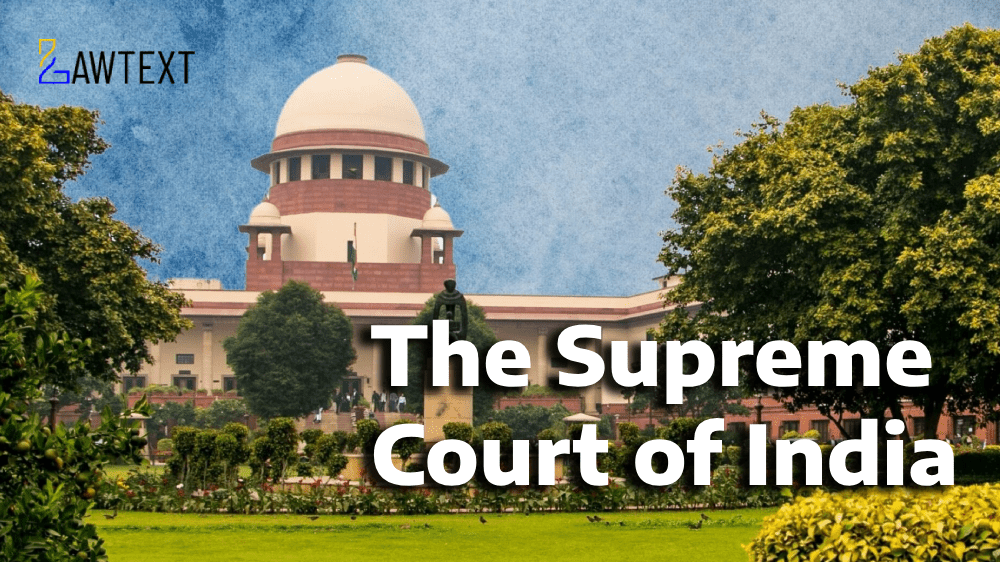Supreme Court Orders Release of Arvind Kejriwal on Bail in CBI Excise Policy Case. Arvind Kejriwal's Arrest by CBI Challenged, Supreme Court Upholds Procedural Legality but Grants Bail Due to Prolonged Incarceration and Lack of Immediate Trial Conclusion.

CASE NOTE & SUMMARY
The Supreme Court addressed two criminal appeals concerning the legality of Kejriwal’s arrest and his application for bail in a CBI case involving alleged irregularities in the Delhi Excise Policy (2021-2022). While the Court upheld the procedural legality of the arrest, it granted bail considering Kejriwal’s prolonged detention, the unlikelihood of the trial concluding soon, and his compliance with previous bail terms in related ED matters.
-
Background:
- Arvind Kejriwal, a three-time Chief Minister of Delhi, was implicated in a conspiracy regarding the 2021-2022 Delhi Excise Policy, alleged to have benefited private liquor vendors and used funds for political gains.
- The Central Bureau of Investigation (CBI) registered an FIR against multiple individuals under Sections 120B (criminal conspiracy) and 477A (falsification of records) of the Indian Penal Code (IPC) and Section 7 of the Prevention of Corruption Act, 1988.
-
Kejriwal’s Arrest:
- Although not initially named in the FIR, Kejriwal was arrested by the Enforcement Directorate (ED) under the Prevention of Money Laundering Act (PMLA), 2002 in March 2024.
- Following his interrogation, the CBI sought permission from the Trial Court to arrest him, alleging that he was evasive during questioning. The Special Judge approved the request, and Kejriwal was arrested by the CBI on June 26, 2024.
-
Legal Challenges:
- Kejriwal challenged the legality of his arrest, citing violations of procedural safeguards under Section 41A of the Criminal Procedure Code (CrPC), which mandates notice before arrest, and that his custodial interrogation did not justify his continued detention.
- The High Court dismissed his bail application and upheld the legality of his arrest, prompting appeals to the Supreme Court.
-
Supreme Court Ruling:
- The Supreme Court ruled that Kejriwal’s arrest complied with the law, specifically noting the Trial Court's approval for custodial interrogation, thus fulfilling the procedural requirements under Section 41A.
- However, the Court emphasized that prolonged incarceration without trial infringed on personal liberty under Article 21 of the Indian Constitution. Given the extensive number of witnesses and evidence, the trial’s completion was deemed unlikely in the near future.
-
Bail Granted:
- The Court granted bail to Kejriwal under strict conditions, including the furnishing of sureties and prohibiting public comments on the case to ensure the trial’s integrity.
Acts and Sections Discussed:
- Indian Penal Code (IPC):
- Section 120B: Criminal Conspiracy
- Section 477A: Falsification of Accounts
- Prevention of Corruption Act, 1988:
- Section 7: Public Servant Taking Bribe
- Prevention of Money Laundering Act, 2002: Section 19: Power to Arrest
- Criminal Procedure Code (CrPC):
- Section 41A: Notice of Appearance Before Police Officer
- Section 439: Special Powers of High Court or Sessions Court Regarding Bail
Ratio Decidendi:
The Supreme Court held that while the procedural aspects of the arrest were followed as per Section 41A of CrPC, Kejriwal’s prolonged detention pending trial violated principles of personal liberty. The Court found no sufficient risk of him tampering with evidence or fleeing, warranting his release on bail under stringent conditions.
Subject:
Arvind Kejriwal, CBI, Supreme Court, Delhi Excise Policy, Prevention of Corruption Act, CrPC Section 41A, Article 21, Bail
ISSUE OF CONSIDERATION
Arvind Kejriwal Versus Central Bureau of Investigation
Citation: 2024 LawText (SC) (9) 134
Case Number: Criminal Appeal No. 3816 / 2024 (Arising out of Special Leave Petition (Crl.) No. 11023 / 2024) WITH Criminal Appeal No. 3817 / 2024 (Arising out of Special Leave Petition (Crl.) No. 10991 / 2024)
Date of Decision: 2024-09-13
Case Title: Arvind Kejriwal Versus Central Bureau of Investigation
Before Judge: (SURYA KANT J. , UJJAL BHUYAN J.)
Appellant: Arvind Kejriwal
Respondent: Central Bureau of Investigation

